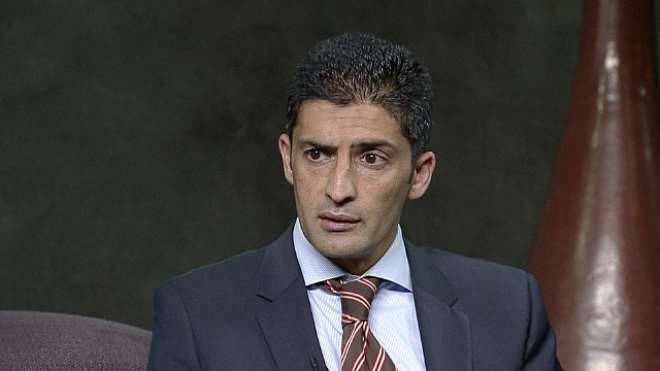
This Friday on Al Jazeera's global talk show South2North, Redi Tlhabi discusses the simultaneous global decrease in poverty and increase in inequality.
She's joined in South2North's Johannesburg studio by two South Africans: Ann Bernstein, executive director of The Centre for Development and Enterprise, and Goolam Ballim, chief economist of The Standard Bank Group. Oscar Guardiola-Rivera, author of What If Latin America Ruled The World?, joins the conversation from London.
'As we near the 2015 millennium development goals, some economists argue that we will see the end of extreme poverty, while others say that the gap between the extremely rich and the extremely poor is greater than ever before,' says Redi at the start of the show. 'Do some economic systems depend on have and have-nots? What is the best way to eradicate poverty?'
Goolam says, 'There are fewer people living in absolute poverty today than say 30 years ago. It's still a very, very large number but nominally that figure is smaller.'
Oscar argues that poverty isn't inevitable. 'It starts with plunder; it is man-made; it is a political issue.'
He adds, 'Poverty is not a complex economic issue best left to so-called experts with alleged bulletproof policy solutions. History in fact shows time and again that poverty begins to end the moment poor people organise themselves and act politically to better their situation.'
Ann counters that economic growth also plays a key role in reducing poverty. She uses India as an example. 'Since 1991, with the liberalisation of that economy, there have been dramatic changes in that society. Is it enough? No. But has it had an impact on millions of people's lives. Absolutely.'
She also discusses China. 'Since China decided to go for a much more market-orientated system, driven by the farmers in the rural areas who were allowed to keep some of their profits from their agricultural work, we have seen phenomenal changes that have lifted more people out of poverty than the world has ever seen before and more quickly than the world has ever seen before.'
Oscar argues that China's growth isn't just because of market liberalization though. 'On the one hand, what you have is indeed a space for business and markets, but one that seems to thrive under the totalitarian rule of one party, a Communist party.'
Ann says 'the much more constructive conversation' isn't about 'the market or the state; it's about markets and states For anyone in this day and age to say that markets haven't made a phenomenal difference to poverty, they're ignoring the facts'
However, Oscar counters that, 'The so-called trickle-down theory of economic prosperity is as much of a lie in the United States as it would be in the global South.'
Goolam backs this up when he says, 'While nominal poverty has declined, there generally has been a rise in inequality.'
Ann says, 'The gains of economic growth are increasingly going to those people who have education and the means to exploit the entrepreneurial opportunities. You're going to get growing inequality in a growing society. This is inevitable. Some people are better equipped to take advantage of the opportunities of change than others. You have to be very realistic about this; you're never going to have a society where there's phenomenal equality.'
She uses the example of two Indian states: Kerala, one of the richest, with one of the highest levels of inequality, and Bihar, one of the poorest, with one of the lowest levels of inequality. 'To which state do you think people are emigrating? It's to Kerala,' she says.
Oscar counters, 'If the South can take the North into the 22nd century, it must avoid the mistakes that were made in the North. The threat of growing inequality is as much of a reality in the developed world as it is in the developing world. It takes politics to make sure that gap does not continue to grow as it is doing now.'
Ann discusses Brazil, where unemployment is now in single digits, and says, 'The much more interesting question is not so much how many people are in poverty but how do so many people get out of poverty?'
Goolam believes that many won't. 'It is likely we will have a section of society that will forever be excluded from the formal economy,' he says. He defines this section as 'those who are not appropriately skilled or appropriately literate.'
He adds, 'The current situation in Spain, in Greece, even here in the United Kingdom seems to demonstrate exactly that: that unemployment is going to stay with us for the long term. If that is so, it is necessary for the state to develop policies and institutions that will take care of the unemployed.'
Goolam says that when people are unemployed for too long, they will organize themselves politically.
Oscar sees this as the key to real change. Discussing Bolivia, Ecuador and Venezuela, he says, 'When the voice of the people is heard, when they make themselves heard, and when they elect officials who are willing to listen to poor people's own perception of poverty - then and only then will things begin to change.'
This week's episode of South2North premieres at 19:30 GMT on Friday, 23 July 2013 and also screens on Saturday at 14h30, Sunday 04h30 and Monday 08h30.
For more information, visit http://www.aljazeera.com/programmes/south2north/, where all episodes are available to watch online.
You can also tweet your questions, comments and opinions to @AJSouth2North or find South 2 North on Facebook: http://www.facebook.com/pages/South-2-North/255419671252120.
Catch up on last week's episode, where Redi discussed the changing face of modern fathers, at http://www.youtube.com/watch?v=SYB26VaDGH0.
 ANN-BERNSTEIN
ANN-BERNSTEIN
 GOOLAM-BALLIM
GOOLAM-BALLIM
 REDI-TLHABI-BY-GRANT-DIFFORD
REDI-TLHABI-BY-GRANT-DIFFORD




 Ghana will make maiden voyage into space should Bawumia become President — Chair...
Ghana will make maiden voyage into space should Bawumia become President — Chair...
 Train crash: Despite the sabotage, we shall not be deterred and will persevere —...
Train crash: Despite the sabotage, we shall not be deterred and will persevere —...
 Tema-Mpakadan railway project a perversion of the original viable concept design...
Tema-Mpakadan railway project a perversion of the original viable concept design...
 Train crash: Elsewhere, everyone involved in the test will either be fired or re...
Train crash: Elsewhere, everyone involved in the test will either be fired or re...
 Ghana, other election bound-countries must build fiscal buffers – IMF admonishes
Ghana, other election bound-countries must build fiscal buffers – IMF admonishes
 Parliament reconvenes late May, denies Speaker Bagbin delaying recall over NDC t...
Parliament reconvenes late May, denies Speaker Bagbin delaying recall over NDC t...
 $100m needed to revitalise Ghana's poultry sector — GNAPF
$100m needed to revitalise Ghana's poultry sector — GNAPF
 Driver arrested for causing train collision on Tema-Mpakadan Railway Line
Driver arrested for causing train collision on Tema-Mpakadan Railway Line
 Police grab trucker for Tema-Mpakadan rail accident
Police grab trucker for Tema-Mpakadan rail accident
 Gov't plans to revise traditional customs following Gborbu child marriage
Gov't plans to revise traditional customs following Gborbu child marriage
